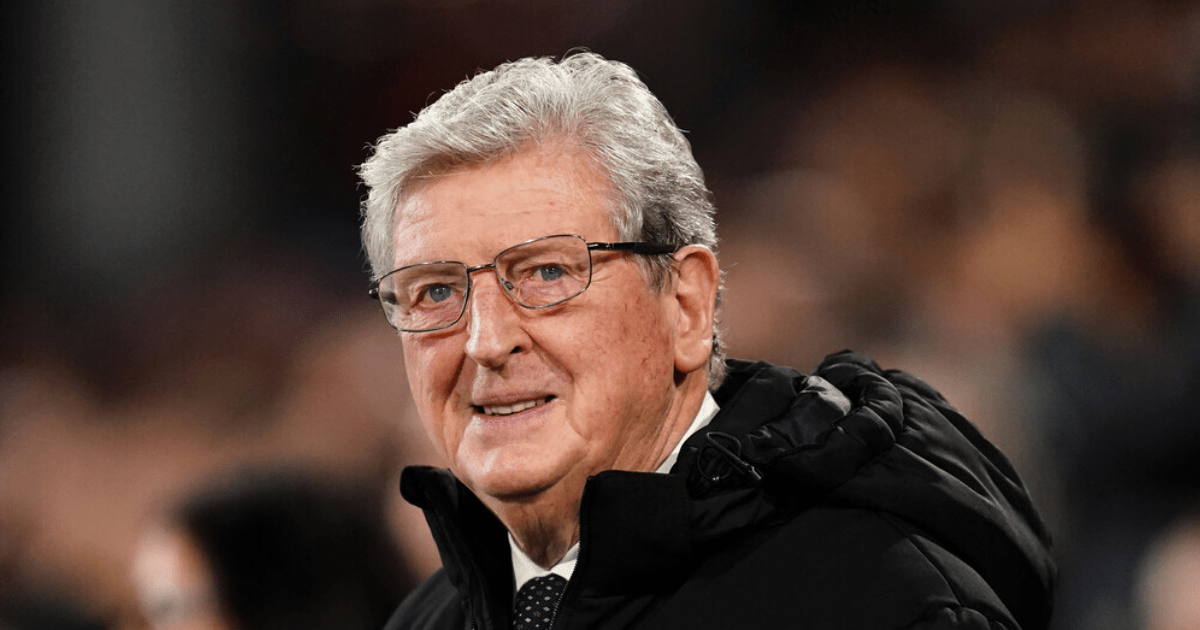Crystal Palace manager Roy Hodgson, 76, has been taken ill during a training session, leading to the cancellation of his pre-match press conference.
Training setback
Hodgson was due to face the media at 1:30pm, but members of the press were informed at 12:55pm that the press conference would not take place as scheduled. It was revealed that Hodgson had fallen ill earlier in the day during training.
Crystal Palace confirmed the news on social media, stating: "Unfortunately, today's press conference will no longer take place as scheduled as Roy Hodgson was taken ill during this morning's training session."
Previous absence
This is not the first time Hodgson has missed a game due to illness. In September, he was unable to attend the team's match against Aston Villa. On that occasion, former Palace defender Paddy McCarthy took charge of the team, with assistance from Hodgson's long-term assistant Ray Lewington.

Upcoming match
Crystal Palace is set to face Everton at Goodison Park on Monday night. The team's players are scheduled to have a day off tomorrow.
Pressure mounting
Hodgson has been under increasing pressure as Crystal Palace's performance has declined in recent weeks. The team has only won two of their last 15 games in all competitions. In their most recent match, they squandered a 1-0 lead to lose 3-1 at home to Chelsea.
Injuries to key players, including Michael Olise, Eberechi Eze, and Marc Guehi, have further complicated matters for Palace.
Potential replacements
There have been reports that Crystal Palace's sporting director, Dougie Freedman, has been in contact with former Eintracht Frankfurt boss Oliver Glasner about potentially replacing Hodgson. Another name linked with the position is Ipswich manager Kieran McKenna, although it is believed that he is not interested in leaving Ipswich at this time.
Frequently Asked Questions
How do I become a competent football goalkeeper
A goalkeeper’s training should focus on reflexes agility and positioning. A goalkeeper’s skills must include the ability to stop shots and control of the penalty zone through punching or catching. They also need to have a good distribution technique with both feet and hands. Mental resilience, decision-making under pressure, and effective communication with the defense are also key aspects of goalkeeping. To master the art, you must practice regularly, get constructive feedback from your coaches and analyze your performances to identify improvement areas.
What role does the coach play in the success or failure of a team?
A coach’s key role in a team’s football success is the development of training programmes, tactical planning, as well as player management. The coach’s responsibilities include formulating effective training sessions, devising strategic game plans, and motivating players to perform at their best. Coaches are also responsible for making crucial decisions regarding the selection of players and their positioning, as well as managing the dynamics in the team. This helps to create a positive atmosphere and maintain focus. It is often their leadership that guides teams to overcome obstacles and achieve success.
What strategies can I use to stay motivated and focused on improving my football skills?
Set clear, attainable goals and monitor your progress toward them to stay motivated. Regularly reviewing performances in training and matches can help identify both strengths to build upon and areas to improve. Joining a group of players or finding a training partner can help foster relationships that promote persistence. Maintaining a positive attitude and visualizing the success you want to achieve can also be powerful motivational techniques. Incorporating diversity in practice routines, allowing sufficient recovery and rest time and keeping practices interesting are important strategies for maintaining motivation and focus.
How can I improve my football technique effectively?
It is important to practice your fundamentals and improve your technique. It is essential to regularly perform drills which improve ball control, accuracy passing and precise shooting. Dedicating time to perfecting your weaker foot and improving balance and coordination through agility exercises will also greatly benefit your technique. Additionally, watching professional footballers in action and analyzing the way they move, position themselves, and make decisions can give you valuable insights and improve your skills.
What are the fundamental skills necessary to play great soccer?
To be a good football player, you need to develop technical, tactical and physical skills. Technical skills can include ball control and dribbling. They also include passing and shooting. Tactical understanding includes the ability to understand the game and its rules, including positioning, movement, decision-making, etc. The performance of a player is dependent on physical attributes, such as strength, endurance, and speed. Finaly, mental toughness and focus are crucial to maintaining performance through a match.
Statistics
- Coaches who engage in continuous professional development contribute to a 40% better win ratio for their teams.
- Football players who follow a structured fitness regimen can see up to a 7% increase in their on-field speed and agility benchmarks.
- Teams that prioritize teamwork in training sessions increase their passing accuracy by an average of 15% in competitive matches.
- Goalkeepers who engage in specialized reaction-time training reduce their goals-conceded tally by an average of 25% over a season.
- Studying match footage for at least 4 hours a week can lead to a 10% improvement in a player’s tactical awareness on the field.
External Links
ffacoach.com
fai.ie
bbc.co.uk
topendsports.com
fifa.com
How To
Learn how to perfect your passing skills in football
To perfect your passing, you must master various techniques. These include the push pass and driven pass. You can become more versatile by practicing each technique using both feet. Use passing drills that involve moving targets and variable distances to better mimic match conditions. Aiming for precision rather than just power, focus on the accuracy of your passes. It is important to repeat passing exercises daily. Study the passing styles of professional footballers to learn about their creativity and timing.

